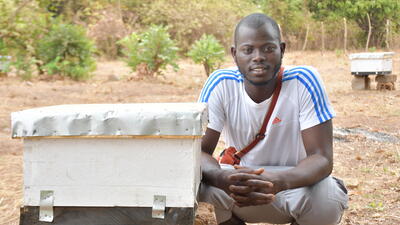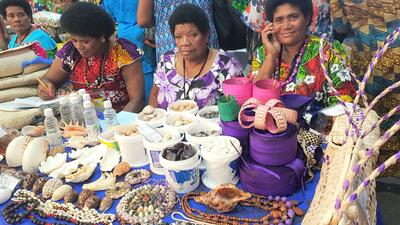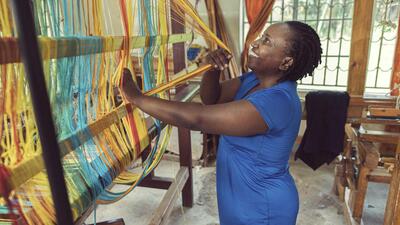
Mitigating the impact of COVID-19 on business
Small businesses are an important channel for achieving the Sustainable Development Goals, playing a vital role in reducing poverty and income inequality
It is widely recognized that micro, small and medium-sized enterprises catalyse development, particularly in small economies, and that they contribute positively to economic growth, job creation, foreign exchange earnings, social inclusion and further integrating small states into the global economy.
Invariably, small businesses are an important channel for achieving the Sustainable Development Goals (SDGs), playing a vital role in reducing poverty and income inequality, including among women and youth.
In Small Island Developing States (SIDS), such as those represented in the Organisation of Eastern Caribbean States (OECS), small businesses take on added significance, since nearly all private enterprises, especially indigenous ones, are either micro, small or medium in size.

According to the Caribbean Development Bank, across the wider Caribbean region, 92% of all formal enterprises are small businesses, contributing to 60% of private-sector employment, 50% of GDP and 39% of total exports.
Micro, small and medium-sized businesses (MSMEs) usually face specific challenges and inhibiting factors that constrain their competitiveness and dampen their economic and export performance.
These challenges include, but are not limited to, access to finance, infrastructure and logistics, human capital, technology absorption and innovation and competition deficits.
The COVID-19 pandemic has exacerbated many of these challenges, particularly with regard to demand and supply-side operations, disruptions to supply chains and cash flow constraints.
Unfortunately, these businesses have been unable to pivot to new business models and adapt to the rapidly changing business environment, partially due to a lack of finance as well as difficulties in absorbing the new technologies necessary for digital trade and e-commerce.
To gauge business’ sentiment in terms of adapting to the “new normal” in the COVID-19 era, the OECS Commission conducted a qualitative online survey in March 2020 with 80 responding firms, with the following results:

With the survey conducted at an early stage of the pandemic, it is highly probably that the impact on small businesses has worsened.
However, the OECS Commission and its Member States are supporting micro, small and medium-sized enterprises through these challenges.
Under the Revised Treaty of Basseterre establishing the OECS Economic Union, we coordinate, harmonize and undertake joint actions and policies with the objective, inter alia, of “harmonious development of economic activities…” and “economic growth, development and international competitiveness.”
These joint actions and policies focus on trade and development through which we intend to strengthen the private sector’s ecosystem.
The Commission has also developed a draft framework for an OECS MSME Policy supporting job and wealth creation, as well as sustainable, economic and social development for small businesses.
For example, our current programmes provide technical assistance and training to youth entrepreneurs; connect businesses in French and English-speaking member states; and support agribusinesses and manufacturers in marketing to enter international markets.
We remain committed to supporting small businesses, especially in the context of an unprecedented global pandemic, which has left no country unscathed.
The pandemic is a reminder that each of us in a position of responsibility has an obligation to set the right conditions to support a thriving ecosystem for small businesses.



















